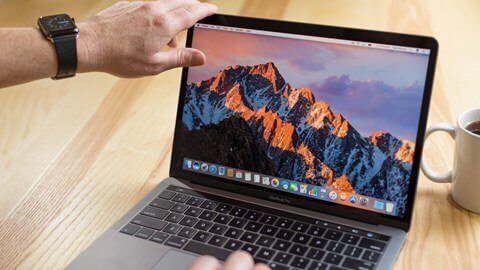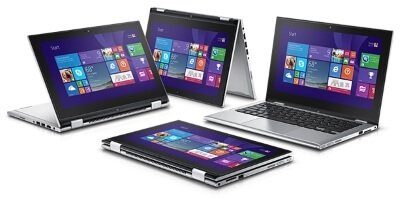Around the United States, 74.6 million students are headed back to school.
Like the world around us, back-to-school deals are more diverse and complex than ever before. Although they were originally intended for traditional students, this is no longer the case. Today, there are many people that take advantage of back-to-school deals—some of which are not even students.
What does this have to do with buying a laptop, though? Well, right now is one of the best times of year to buy a new laptop . The majority of laptop manufacturers release new laptops this time of year, and many of them even come with special discounts.
The only trouble is that with so many new models and technologies, it can be extremely difficult to decide what laptop is right for you. Luckily, it’s possible—and rewarding—to understand the current technologies on the market to make the best laptop purchase for you.
Below, you’ll find a practical guide to buying a new laptop. After you’ve finished this article, you’ll be able to confidently understand what laptops you should and shouldn’t buy during the back-to-school frenzy.
Define Your Needs
The most important thing to consider when you buy a new laptop is what you want to use it for. Will it be for your personal use, or will it be shared? Before you begin to look at any of the nitty-gritty technological information, consider what the laptop will be used for. In general, there are three types of laptop users.
The first group can be defined as “light users.” These individuals generally do things like create and use email accounts , surf the web and store photos on their computers. Next are “average users,” who like to use a few more features, such as spreadsheet and document applications. “Demanding users” want their laptops to be able to multitask. For example, they want a system that can handle multiple tabs and programs at the same time.
Once you understand which usage category you fit into and what you want to use your laptop for, you’ll start to understand the kind of laptop you need.
Consider the Operating System
Understanding how you’ll use a laptop will help you determine the operating system you need. There are three main operating systems: Windows, Chrome and Mac. If you’ve used Windows in the past, you might find that your familiarity with the system makes it preferable over the other options. In addition to a user-friendly interface, Windows now offers features like touch-screen interfaces. Of course, this option is still functional with a traditional mouse and keyboard.
Chrome’s operating system is relatively new, as it was released by Google in 2008. This operating system is different from the other options in many ways. If you spend your time using web-centric services and can do without computer-based programs, you might find that Chrome’s system is the best fit for you .
Mac’s operating system, OS X, also offers an easy-to-use interface. If you have worked on Windows in the past, you will likely assimilate quickly to Mac’s OS. One of the main benefits of working on a Mac operating system is that they often have fewer issues with viruses and malware. That being said, every laptop experiences these kinds of issues from time to time, which makes investing in an online fraud prevention and customer support a must—regardless of your operating system.
Think About Specs
If your brain is a bit overwhelmed by words like “processor,” “memory,” “hard drive” and “resolution,” you’re not alone. To gain a better understanding of what these specs really mean, you can first liken the word processor to brain. The bigger the processor, the smarter the computer, and the more effectively it will run. If you want to be able to stream content and play games on your computer, you’ll want to look for a laptop with a bigger processor.
The level of memory a laptop has correlates to its ability to do things simultaneously. Laptops with lower memories cater to light users who generally only use their computer for one simple task at a time. If you want to be able to run multiple applications concurrently, you’ll need a laptop with a larger memory.
A hard drive dictates how much information you can store on your laptop. It can also influence how much time your computer takes to carry out various operations. If you’ll be using your laptop for time-related tasks, you’ll want to choose a hard drive that provides nearly instantaneous speeds.
One of the last specs you’ll need to think about is resolution. As a screen’s resolution increases, the more visible information will become without scrolling. If you plan on using your laptop to edit photos or watch movies, you’ll want to look for a computer with high resolution.
Ponder Special Features
As mentioned earlier, a lot of Windows OS laptops now include touch-screen capabilities. If you currently use a touch-screen tablet or smartphone, you might find that you really enjoy a laptop that also offers this feature. One of the best ways to advantage of touch-screen capabilities is to consider a two-in-one laptop. Here, there are two main options – a split style and a 360-degree hinge option.
If you’ll be taking advantage of USB cords, you’ll want to ensure your laptop features ports. You might want to consider searching specifically for USB Type-C ports—a special feature rolled out this year. These ports carry data and power over a single cord, which will provide you with more functionality than a traditional USB port.
Another special feature that a few laptops now offer is 4G LTE. These laptops allow their users to access the internet anywhere there is cell service. This feature is especially popular among on-the-go professionals and travel enthusiasts.
Establish a Budget
It might seem a bit peculiar that establishing a budget is number five on this list, but it’s for good reason. It’s really difficult to establish a realistic budget before you know what you’ll use your computer for and what features you’ll need to accomplish your goals.
When a basic laptop will do, you might find it easier to adhere to a lower budget. The more features you require, the more your budget will increase . The phrase “You get what you pay for” is very apt when it comes to purchasing laptops.
A general rule of thumb is that a light use laptop should be around $600. An average user will find the best value in an $800 – $1,000 machine. Lastly, demanding users generally need to budget at least $1,500 for a laptop that’s suited for their requirements.
Plan for Progress
One thing that’s important to note is that over time, you might find your needs and wants increase. Although you plan on using your computer for email now, you might find that in two years you’d like to edit photos on it so you can send beautiful images to your family.
Your new laptop will last you at least a few years, especially if you take care of it properly, so you want to buy something that’ll accommodate you every day for at least five years. To plan for the future, think about things you’re interested in learning about. Then, when you are looking for a laptop, ensure it will serve your future needs and goals.
Mitigating Stress; Maximizing Excitement
Every big change—whether you’re headed back to school or buying a new laptop—can be stressful. With the right tools and knowledge, though, you can successfully navigate any new venture.
If you need more help understanding which laptop is right for you, start researching other factors you should consider when laptop shopping. When you have a firm grasp of what you’re looking for, the best thing to do is to start comparing models. Hunt around on the internet and identify a few laptops that might be suitable for your needs. Then, create a pros and cons list for each one and see how they stack up against one another.
To start:
Light users might want to look into the Acer Aspire E E5-575-53EJ, HP17-X115DX and Lenovo ThinkPad E560.
Average users might find themselves satisfied with the HP ENVY 13-ab016nr, Apple MMGF2LL or ASUS ZenBook Flip UX360CA.
Laptop shoppers that demand high performance can start by considering the ASUS ROG Strix GL553VE, MSI GS63 Stealth Pro 4K-228 and Alienware 15 R3 AW15R3-7338SLV-PUS.
The researching process will take time and effort, but at the end of the day, it’ll be well worth it. Laptops can connect you to the larger world and allow you to access information in mere seconds. Some of them allow you to watch films, and some of them allow you to stay connected with your loved ones through email and social media. Laptops offer unparalleled accessibility and connectivity because that enable you to access information wherever you have internet connection.
When all is said and done, the benefits of using a laptop are endless, as long as you select the right one for your needs.



